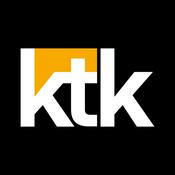277 episódios
- Slator’s Head of Research Anna Wyndham joins Florian on the pod to discuss Slator’s new Pro Guide: Growth Hacks for Language Technology Platforms, describing it as a practical playbook for turning strong AI products into scalable revenue.
Florian highlights ElevenLabs’ USD 500m raise at an USD 11bn valuation and Synthesia’s USD 200m round as evidence that investor appetite for voice AI is accelerating rapidly.
Florian connects that funding momentum to product launches, including ElevenLab’s Expressive Mode and YouTube’s expanding AI dubbing push.
The duo then reviews YouTube’s AI dubbing in German and Spanish, finding the intelligibility and naturalness impressive, but rhythm and intonation still mirroring the English source language too closely.
Anna turns to new academic research arguing that current text-to-speech evaluation methods under-test real-world deployment factors such as long-form consistency, punctuation handling, and robustness across messy inputs.
Anna reports that Appen delivered double-digit revenue growth and an EBITDA turnaround in Q4 FY25, driven by a higher share of generative AI projects and strong momentum in China.
Florian closes by touching on prompt injection issues in AI translation tools, RWS’s return to growth, and Lionbridge’s ownership transition. - Florian and Esther discuss the language industry news of the past few weeks, starting with senior hires in revenue and operations at DeepL and what this signals about the LTP’s next phase.
The duo then turns to new data from AI labs and hyperscalers, where Florian highlights findings from Anthropic’s research showing AI is settling into a support role rather than full automation, with usage concentrated around review and validation, and humans remaining firmly in the loop.
On the consumer side, Esther points to Microsoft Copilot data showing translation and language learning as one of the most common everyday AI use cases. Florian flags Adobe’s new “Translate this PDF” feature, where formatting was the main issue rather than translation accuracy.
The conversation then shifts to infrastructure, where Florian emphasizes how NVIDIA is positioning itself at the center of real-time multilingual voice ecosystems by open-sourcing models while driving demand for its hardware.
The duo unpacks OpenAI’s quiet launch of ChatGPT Translate. Esther notes that reactions have been mixed, with many seeing the interface as basic, while Florian stresses the strategic importance of the move. Then the two disagree on whether or not the AI’s default prompt to make the translation sound “more fluent” makes any sense.
Esther walks through recent M&A activity and funding rounds, highlighting acquisitions in Europe and the US alongside major raises by Synthesia, Deepgram, and reportedly ElevenLabs.
Florian concludes with a look at an S-1 filing by a tiny company, using it as an example of how the US capital markets accommodate everything from billion-dollar AI firms to survival-stage experiments. #275 The Future of Language and Translation Education with JC Penet and Joss Moorkens
16/1/2026 | 50minJC Penet, Reader in Translation Industry Studies at Newcastle University, and Joss Moorkens, Associate Professor at DCU, join SlatorPod to talk about the new open-access book Teaching translation in the age of generative AI: New paradigm, new learning?
The duo explains how large language models (LLMs) have a different impact than earlier machine translation breakthroughs as they generate human-like text, respond to prompts, and adapt output to context.
Public hype around LLMs has affected demand for some translators and fueled misconceptions around the value of studying translation. Although, JC and Joss stress that translation education must adapt.
JC outlines how students need to assess whether output is appropriate for purpose, audience, risk, and context. This places greater importance on skills such as selection, evaluation, and effective prompting, while still relying on core linguistic and cultural competence.
Joss adds that this shift reflects real industry practice, where different content types already receive different levels of automation and human involvement. Drawing on healthcare research, he highlights how AI can outperform traditional workflows in some contexts but fail badly in others, especially across languages with uneven data coverage.
Joss also highlights ethical blind spots that arise when performance metrics dominate decision-making. He describes a “triple bottom line” approach that weighs people, planet, and performance equally.
On fears of de-skilling, JC argues that excluding AI from classrooms poses a greater risk. Without guided engagement, students may use tools uncritically or fail to develop AI literacy altogether. Joss points to initiatives such as LT-LiDER, an Erasmus+ project designed to build AI literacy among educators.
Looking ahead, the duo contends that studying languages and translation remains valuable because it develops deep reading, critical thinking, intercultural awareness, and adaptability.- In the 2025 year-end episode of SlatorPod, hosts Florian Faes and Esther Bond reflect on a year defined by rapid AI investment, shifting policy, and structural change across the language industry.
Esther opens the year-in-review by highlighting January’s twin funding milestones in the language AI and product space. Florian follows with February, which saw hyperscalers and AI labs release data highly relevant to the way AI translation is being used.
March, April, and May saw major developments both on the regulatory side and in terms of bolt-on acquisition deals.
Past the mid-year point, OpenAI’s decision to hire a localization manager was what grabbed the industry’s collective attention. The AI lab’s decision contrasted with September’s news, which saw the closure of one of the world’s most recognized academic programs for localization.
The year closed on publicly listed LSIs releasing mixed results and major announcements in AI translation for literature and live speech translation rollouts.
The duo closes with 2026 predictions! #273 A Big New Market for Dubbing and Accessibility Solutions with 3Play Media co-CEOs
11/12/2025 | 51minJosh Miller and Christopher Antunes, Co-Founders and co-CEOs of 3Play Media, join SlatorPod to talk about the company’s trajectory as a leading language solutions integrator (LSI) in multilingual video accessibility.
The duo explains how the two met at MIT, where an early challenge from OpenCourseWare revealed that captioning thousands of technical videos was financially impossible, leading to the company’s founding, where they developed proprietary tooling, leveraged AI, and incorporated expert-in-the-loop solutions.
Josh describes how their platform evolved into a dual system supporting both customers and large-scale operations. Chris notes that the LSI now serves media and entertainment, higher education, e-learning, and corporate clients.
Chris explains that three major trends — the European Accessibility Act (EAA), advancements in voice technology, and the rise of live events — drove their expansion into global localization.
The co-CEOs detail their dubbing journey, noting rapid learning over the last 18 months and the emergence of a big mid-tier market between high-end theatrical dubbing and low-cost AI-only output.
Josh explains how the EAA is pushing companies to prepare for large columns of multilingual captioning and audio description. He notes that interpretations of the law still vary, but major media firms are already investing to avoid disruption.
The duo shares findings from their 2025 State of ASR Report, where they found that accuracy initially improved sharply with generative models but has now plateaued.
Looking to the future, the co-CEOs are working on shifting their model to incorporate AI-generated scores and analytics, allowing customers to decide on the level of expert intervention.
Mais podcasts de Negócios
Podcasts em tendência em Negócios
Sobre SlatorPod
SlatorPod is the weekly language industry podcast where we discuss the most important news and trends in translation, localization, interpreting, and language AI. Brought to you by Slator.com.
Site de podcastOuça SlatorPod, Jota Jota Podcast e muitos outros podcasts de todo o mundo com o aplicativo o radio.net

Obtenha o aplicativo gratuito radio.net
- Guardar rádios e podcasts favoritos
- Transmissão via Wi-Fi ou Bluetooth
- Carplay & Android Audo compatìvel
- E ainda mais funções
Obtenha o aplicativo gratuito radio.net
- Guardar rádios e podcasts favoritos
- Transmissão via Wi-Fi ou Bluetooth
- Carplay & Android Audo compatìvel
- E ainda mais funções


SlatorPod
Leia o código,
baixe o aplicativo,
ouça.
baixe o aplicativo,
ouça.







































